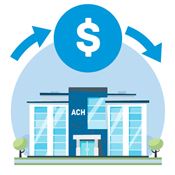PaymentCloud Pricing
Payment processing services can sometimes break the bank. For services like PaymentCloud, how much will you need to budget? Read on to find out.
 |
There are many fees involved in credit card processing. And although PaymentCloud is a trusted merchant services provider, they're not exactly the most transparent with their pricing. To get a quote, you'll have to contact them.
In this article, you'll learn about your potential pricing model, any fees you may encounter, and the cost of hardware and software. You'll also be able to see if this payment processor is worth it for you. Read on to find out more.
How Much Does PaymentCloud Cost?
PaymentCloud offers customized pricing to their merchants, whether you're a low-risk, mid-risk, or a high-risk business. This means you won't find specific rates on their website.
The processing fees will depend on several factors. You may be assessed based on your processing history, credit history, sales volume, etc.
The best way to determine the cost is to ask them directly for a quote. That said, try to ask for interchange-plus pricing since it's an affordable option.
Unfortunately, PaymentCloud doesn't offer free merchant account services. Like other payment processors, you'll have to pay processing fees and other fees related to your account. The good news is that there are no setup fees.
Speaking of interchange-plus pricing, there are other pricing models credit card processors offer.
Pricing Models
There are four types of pricing models for credit card processing. PaymentCloud doesn't offer membership or subscription pricing, unlike Stax. So you may be offered one of the following:
- Interchange-plus Pricing
Interchange-plus pricing is the most transparent pricing model. You'll clearly see how much you're paying for interchange rates, card brands, and payment processors.Interchange rates are based on the type of cards your customers use (i.e., credit consumer, debit business).
Card brand fees, on the other hand, differ if they use Visa, Mastercard, Amex, or other networks. The processor markup is the fee charged by your payment processor.
Let's say the interchange fee costs 1.65% + $0.10 and the card brand fee is 0.13% + $0.02. If the processor markup is 0.40% + $0.08, then a $100 sale will cost you $2.38 (from 2.18% + $0.20). - Flat-Rate Pricing
As the name suggests, you'll pay a predictable flat fee for flat-rate pricing. That said, you won't clearly see how much you're paying to card brands, banks, and your processor.On the plus side, this pricing model makes budgeting easier. Payment service providers like Square and Stripe typically use this pricing model.
- Tiered Pricing
Tiered pricing offers three flat-rate pricing instead of just one. Transactions are categorized into qualified, mid-qualified, and non-qualified depending on the type of card or risk of payments.This can make it very confusing and way more expensive compared to the other models. But this is usually what's offered to high-risk businesses.
No-fee Credit Card Processing
"No-fee" or zero-cost credit card processing is not really a traditional pricing model. Instead, this setup lets you pass on the processing fees to your customers through "surcharges."
There are laws regarding this type of processing, and so only a few specialize in it. PaymentCloud is one of them and can help you out by offering surcharge-compliant card terminals.
You can pass credit card processing fees through surcharges if your state allows it. But there are laws and card brand rules to follow. Also, keep in mind that customers may not be so excited to pay extra because they choose to pay with a credit card.
When you surcharge your customers, you can only do so with credit card fees. Unfortunately, there are other fees to consider.
Other Fees You May Encounter
Although PaymentCloud doesn't specify the fees they charge on their website, you can always ask them about the following:
- Monthly fees or annual fees
- Monthly minimum fees
- Early termination fees
- PCI compliance fee
- PCI non-compliance fee
- Account on file fees
- Statement fees
- Batch fees
- Chargeback fees
- Merchant account reserves
PaymentCloud may or may not charge these fees, but these are the typical fees with a credit card processor.
A merchant account reserve holds a set amount of your funds as a safeguard against risks like chargebacks or fraud. And this is held onto by your acquiring bank. That said, high-risk businesses will likely be required of this account.
This laundry list of fees isn't enticing at all. But check out these other factors that may help lower your rates (and help you save).
Factors that Affect Your Processing Rates
A low-risk business will likely have more affordable processing rates than a high-risk business. And the risk you pose is often determined by the industry you belong in.
But here are other factors PaymentCloud may also consider:
- Merchant Category Code (MCC)
This code is the 4-digit number assigned to your business. It's typically based on the type of sales you make (e.g., grocery sales). That said, a business selling different product types may have multiple MCCs. - Accepted Payment Types
Your accepted mode of payment affects your business risk to processors. For example, card-not-present (CNP) transactions are riskier than card-present transactions. This means eCommerce businesses may see pricier rates. - Processing History
PaymentCloud may consider how long you've been processing payments (if you're switching providers). They may also look at the volume of your transactions and your refund ratio. - Personal Credit Score
Your credit score helps PaymentCloud determine how you manage your money. The higher your personal credit score, the more trustworthy you may seem. Try to achieve a score of 670 to 739. - Chargeback Ratio
Similar to why they consider your business industry, your chargeback ratio determines the risk posed by your business.A high chargeback ratio of around 3% makes you a high-risk business. So expect higher than average processing fees. A chargeback ratio of less than 1% is ideal for lower rates.
Since PaymentCloud accepts high-risk businesses, you can apply for an account as long as your chargeback ratio is under 3%. But they may be more forgiving if you've been processing payments for a longer period.
In actuality, processing rates aren't the only fees you should be concerned about. After all, you'll need various hardware and software to actually take debit cards and credit card payments.
Let's talk about how much they can cost you.
Price for Hardware and Software
PaymentCloud is a merchant services provider. They're not POS system providers who directly offer the hardware and software that you'll be working with. However, they can connect you with the best third-party options.
To start taking payments, you may need:
- Payment gateway
- Virtual terminal
- Online shopping carts
- POS system
Payment Gateways
PaymentCloud works with multiple payment gateways to help you find the best fit. Some of the most popular payment gateways include Authorize.net, NMI, and USAePay.
Here are their fees:[1]
| Authorize.net | NMI | USAePay | |
|---|---|---|---|
| Monthly Fee | $25/mo | $20/mo | $20/mo |
| Transaction Fee | $0.25 | $0.25 | $0.25 |
| Daily Batch Fee | $0.10 | - | - |
NMI is actually the parent company of USAePay. That's why they offer the same pricing. Custom pricing is also available for large businesses.
PaymentCloud is not a payment gateway. But it works with various payment gateways to provide you the merchant account services you need. These payment gateways are secure and PCI-compliant. You can integrate them with your online shopping carts.
Virtual Terminal
PaymentCloud provides custom pricing for virtual terminals. So you'll have to manually ask for a quote to accurately budget.
But on average, a virtual terminal can cost you $10 to $30/mo. Per transaction fees may also range from $0.05 to $0.15.
Virtual terminals can be a good investment. They may incur the highest processing fees since you're taking keyed-in or CNP payments (which are riskier than in-person payments). But this also means you won't need to purchase additional hardware.
Unfortunately, you can't really avoid payment processing fees. Even with surcharging, you'll still need to pay transaction fees for debit card payments. Your payment processor may also have other fees, such as chargeback fees. However, you can typically reduce fees by negotiating.
Online Shopping Carts
If you plan to sell online, then you'll need a shopping cart for your e-commerce store. Prices for these can range from $30 to $500 but there are also free options you can choose from.
The cost will depend on the features that come with the shopping cart. Some of the best ones PaymentCloud works with include Shopify, BigCommerce, and WooCommerce.[2]
The average processing fees range from 1.5% to 3.5%. But if you're a high-risk business, rates can get up to 5%. Ultra-high-risk businesses can even get rates of 10% or more! This will ultimately depend on your business type and the risk you pose for the payment processor.
POS Systems
Some point-of-sale systems also provide virtual terminals and shopping carts. PaymentCloud works with a few popular options like Clover, Verifone, and Ingenico.
With a POS system, you can accept all forms of payment as long as you have the essential hardware. You may purchase wireless terminals or card readers, for example.
This will let you take chip cards, magstripe, and contactless payments like Apple Pay and Google Pay.
These prices are a lot to remember. But they should be available in your merchant agreement.
PaymentCloud Merchant Agreement
The merchant agreement will contain your agreed terms with the payment processor. In this case, with PaymentCloud.
You'll find information about your fees in it, so be sure to read the fine print. Clarify all the fees and make sure that there are no hidden fees.
Remember, just because you're offered a price doesn't mean you should automatically accept it. You can negotiate and compare the rates with other merchant service providers!
Your account approval would depend on the requirements you submit. Typically, PaymentCloud can approve businesses for a merchant account within 48 hours. It's best to submit the complete requirements upfront to avoid delays.
Having said all that, how do you know if this merchant account provider is good for your business?
Who Is PaymentCloud For?
PaymentCloud can work with you whether you're a small business or a large and established one. They offer customized solutions so your account will have functions suitable for your business.
PaymentCloud serves businesses regardless of industry risk too. However, you'll still want to ensure you belong in the specific industries they specialize in.
Here are some of the industries they support:[5]
- Low-risk Businesses
Low-risk merchants are typically retail merchants. Some low-risk industries PaymentCloud supports include apparel, home goods, pet supplies, books, and beauty products. - Medium-risk Businesses
Medium-risk industries PaymentCloud supports include e-commerce subscriptions, accounting, dropshipping, high-volume businesses, and SEO.Keep in mind that just because you're a non-high-risk business doesn't mean your business doesn't pose a level of risk. Medium-risk businesses are still susceptible to a number of chargebacks, especially the e-commerce industry. - High-risk Businesses
High-risk merchant accounts are hard to apply for but PaymentCloud may just help you out. Some high-risk industries they work with include adult products, guns and firearms, and nutraceuticals.
You can visit the PaymentCloud website for the full list of their supported industries.
If you're still on the fence about PaymentCloud, this next section might help you out.
Is PaymentCloud Worth It?
PaymentCloud is one of the best merchant account providers you can apply for. It's even the best overall in our analysis of the best high-risk payment processors.
The pros and cons may help you weigh it out.
Pros:
- Dedicated account manager
- 24/7 customer support
- Variety of merchant services available
- Works with many business types
- Supports a variety of high-risk merchants
Cons:
- No accreditation from Better Business Bureau (BBB)
- No fees posted on the PaymentCloud website
- Independent sales agents earn commissions, which may increase your fees
Also, your merchant account may be able to access a handful of services, such as:
- Online payment processing (for eCommerce)
- Retail payment processing (for physical stores)
- Mobile payment processing (for on-the-go businesses)
- ACH processing
- Cryptocurrency processing
- eCheck processing
- Mail and telephone order processing
You can even apply for business loans if you ever scale your business. You can choose from asset-based loans, business lines of credit, working capital loans, etc.
The company is loved by many businesses, too, having earned a high Trustpilot rating. Although PaymentCloud is a trusted company, whether it's for your business or not still depends on what you need.
Bottom Line
PaymentCloud doesn't explicitly state its pricing on its website since they offer customized solutions for every business.
That means your processing rates will depend on your business background. On the plus side, what you'll be offered will likely be suitable for your needs.
There may be many fees to consider, so be sure to inquire about all of them. Your merchant account agreement should contain all the necessary information.
References
- ^ PaymentCloud. Payment Gateway Fees & Pricing, Retrieved 8/16/2023
- ^ PaymentCloud. Integrations, Retrieved 9/04/23
- ^ Clover. Hardware devices, Retrieved 8/16/2023
- ^ Clover. Pricing, Retrieved 8/16/2023
- ^ PaymentCloud. Industries, Retrieved 07/29/2023
High Risk? No Problem
- Competitive Options for Payment Processing at All Risk Levels
- Fast Funding
- No Setup/Hidden Fees
- No Minimum Credit Score
- All Industries Accepted
Online Payment Processing
- Accept payments worldwide and automate payouts and financial workflows seamlessly
- Grow with confidence: Whether you're running an e-commerce store, subscription service, or marketplace, Stripe adapts to any business model
- Trusted by millions: From startups to Fortune 500 companies, Stripe powers businesses of every size
- Predictable costs: Transparent flat-rate pricing with no setup fees or monthly charges – pay only for what you use
- Enable more sales: Support credit cards, mobile wallets, and 135+ international payment methods
- Developer-friendly tools: Integrate payments quickly with Stripe's intuitive APIs and documentation
Square Reader: Free Mobile Credit Card Reader
- Pay 2.6% + 15¢ Per Swipe for Visa, Mastercard, Discover, and American Express
- Accept Credit Cards Anywhere
- Fast Setup, No Commitments
Save Up to 40%
- Flat Monthly Subscription Price, Starting at $99
- 0% Markup on Direct-Cost Interchange
- 24/7 Support
Write to Karen Eloriaga at feedback@creditdonkey.com. Follow us on Twitter and Facebook for our latest posts.
Note: This website is made possible through financial relationships with some of the products and services mentioned on this site. We may receive compensation if you shop through links in our content. You do not have to use our links, but you help support CreditDonkey if you do.
|
|
| ||||||
|
|
|
Compare:











